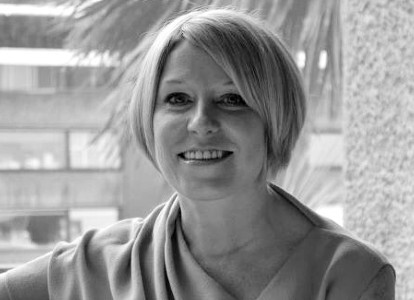
With over 20 years of strategic communications experience, Vanessa Neill shares with us her extensive professional knowledge and academic studies in the field of Environmental, Social and Governance (ESG). From promoting awareness of the need for action against tropical deforestation to analysing the impact of a global pest control company’s smart technology on the planet, Vanessa explains how recent global events have highlighted the importance and interconnectivity of environmental and social issues, prompting organisations to take action with more urgency than ever before.
Career overview
Vanessa Neill is a Senior Sustainability and ESG Advisor to global public and private companies in a myriad of industries, with particular expertise in private equity and asset management; advising them on their sustainability strategy, execution and communications.
Vanessa is on the bench of experts at Nepean as a Sustainability Advisor; a Non-Executive Director and Chair of the ESG Committee of CVC Credit Partners European Opportunities Limited, a closed-ended investment company and a Sustainability Advisor to the Aspen Institute UK.
During her career, she has worked for some of the leading corporate communications agencies including the Tulchan Group, the Hogarth Partnership, as an Associate Partner at Finsbury, where she advised clients in the financial services, private equity and renewable energy sectors, and as a Partner at Kekst CNC (London and New York) where she co-lead the ESG and Sustainability Steering Group.
Vanessa also has extensive experience on the client side, spending almost a decade at Credit Suisse as Head of Investment Banking and Capital Markets Communications. She was responsible for the communications in a number of countries in the EMEA region including France, Spain, Portugal, Germany and South Africa and in 2017, she led the communications for the launch of the Sustainability Strategy, Advisory and Finance department.
Alongside her advisory work, Vanessa is currently undertaking a Postgraduate Masters Diploma at the Cambridge Institute of Sustainable Leadership (CISL).
1. What first sparked your interest in ESG?
The term ESG was first coined at the Who Cares Wins Conference, hosted by the UN Global Compact and International Finance Corporation (IFC) in 2005. A few years later when I was at Finsbury, the phenomenon of integrating ESG into investing, was still not widely considered.
At the time, I was fortunate to work with some early adopters and innovators of fuel cells, wave and wind power; but renewable energy business models were challenged by their cost/price ratios as well as their ability to raise capital to fund their development. We are in a very different place today with prices of green alternatives to fossil fuels significantly lower - according to a 2022 report published by the Intergovernmental Panel on Climate Change (IPCC), solar power has fallen by 85 percent and wind power by 55 percent between 2010 and 2019.
I was also part of the team that advised on communications for the Prince’s Rainforests Project, which was set up by the Prince of Wales to promote awareness of the need for action against tropical deforestation and improve understanding of the link between rainforests and climate change.
2. You recently completed a Masters-level graduate programme at the Cambridge Institute for Sustainable Leadership (CISL). Can you give us the highlights of the case study you worked on as part of this diploma?
In 2020, I enrolled on the executive Postgraduate Masters course in Sustainability Business at CISL to further deepen my ESG knowledge, skills and expertise, which in turn can benefit my clients.
As part of the first year of the course, I undertook three in-depth research papers. Two of these were for a leading global private equity firm based in London, where I completed analysis and a strategic action plan on social factors for their portfolio companies. I also completed a group assignment with six other students on how leading cities of the future can become private finance’s bankable projects of today.
As part of my continued studies at CISL, I have just completed an analytical case study on a pest control business – a portfolio company within an impact focused fund of a global listed private equity firm. Given the high toxicity of biocides on the ecosystems, health implications of pest infestations and potential for food waste; the purpose of my research was to identify the scale and depth of the impact of their smart technology on the Planet.
3. Corporate purpose and ESG issues have become even more pertinent since the global Covid-19 pandemic. Which do you feel will be the most important for corporate culture throughout 2022; E, S or G?
For most investors, Governance has always been the first priority.
Two recent worldwide events have highlighted the importance of social issues. The Covid-19 pandemic fundamentally changed the operating model of all companies and redefined how they interact with employees, consumers, suppliers and communities. Stakeholder engagement and how Boards build relationships and bonds with their employees, suppliers and communities will be key to building a sustainable business. The pandemic also shone a light on important social issues such as diversity, equity and inclusion (D,E&I).
The Russian invasion of Ukraine has impacted companies significantly, from the recalibration of supply chains to reducing dependence on Russian and Ukrainian commodities, whilst not forgetting the importance of accelerating the shift towards greener sources of energy. The success of the energy transition will also be judged on how companies have mitigated the social impact of decarbonisation strategies on employees and communities – their so-called “Just Transition” plans.
Both these events have shown us the inter-connectedness of social and environmental issues. How companies address them in a holistic way and integrate ESG within their business operations will increasingly be scrutinised by investors.
These recent experiences are forcing companies to adopt stronger governance of board oversight and accountability of E and S issues.
4. Companies tend to pay more attention to their ESG credentials when investors flag an interest. As well as investors, who else should organisations be engaging with? Are any of these stakeholder groups more important than others?
Over the past two years during the pandemic, we have realised the importance of solidarity and supporting employees, suppliers and communities. Other important stakeholders include regulators, non-government organisations (NGOs), industry/trade bodies and alliances, national and local governments, proxy advisors, ratings agencies and the media.
5. Companies are starting to face more scrutiny about the authenticity of their sustainable agenda and are often nowhere near the net zero credentials they’d like to be promoting. How can they ensure they’re not engaging in “greenwashing”?
Many companies have committed to support the goal of Net Zero greenhouse gas emissions by 2050 (or sooner), in line with global efforts to limit warming to 1.5oC.
The focus for companies in 2022 will be to ensure that the Net Zero targets and pledges are translated into robust and concrete plans. Best practice will be decarbonisation plans with milestones, that are detailed, science-based, Paris aligned** and certified by a reputable organisation such as SBTi (Science Based Targets initiative).
Communicating regular progress reports on these plans, evidenced with climate data in line with the recommendations of the Task Force on Climate-related Financial Disclosures (TCFD) will ensure greater transparency and authenticity and help to prevent “greenwashing” and protect reputation.
6. What has been your most memorable work moment?
Recent sustainability advisory work for companies in the private equity and asset management industries has demonstrated how I can measurably contribute towards their sustainability strategy and communications. It has also highlighted the importance of scrutinising data and visiting operations in person. My recent work for the pest control company involved site visits with a technician to observe how the smart technology worked in practice – certainly a memorable experience to be in such close proximity with rodents!
7. What’s the best piece of professional advice you’ve been given along the way, and from whom?
My supervisor at CISL advised me that challenging the status quo can feel uncomfortable but is necessary to effect change.
8. Who inspires you, and why?
There are many individuals working in Sustainability who inspire me, including current and former colleagues working in Sustainability and the CISL tutors and students.
In terms of high-profile Sustainability leaders, I have been inspired by John Elkington, Mark Carney, Paul Polman and Andrew Winston to name a few. One of the central themes of Polman’s and Winston’s book, Net Positive is courage, which is something all sustainability leaders require together with empathy and humility.
9. Do you have any hidden talents?
I’m not sure I would classify it as a hidden talent, but I am proud of the fundraising I have done for charitable causes during my life, including Cancer Research, Breast Cancer Haven and the Motor Neurone Disease Association. I am currently a Trustee and on the Fundraising Committee of the Queen’s Club Foundation, which aims to provide opportunity and inclusive physical activity through Racket Sports.
Thank you, Vanessa.
Financial Times, 6 April 2022, Politics is the barrier to tackling climate change. Available at: https://subs.ft.com/products
** The Paris Agreement, which was made at COP21 meeting in Paris in 2015, committed developed and emerging economies to strengthen the response to the threat of climate change by keeping a global temperature rise this century well below 2 degrees above pre-industrial levels.
The Works Search is a search consultancy specialising in PR and corporate communications. We have unrivalled matching abilities and are known for finding the top 5% performers in the industry - the ones who deliver and make your reputation great. For more advice or market insights, do get in touch with us on 0207 903 9291 or email: sarah@the-works.co.uk


